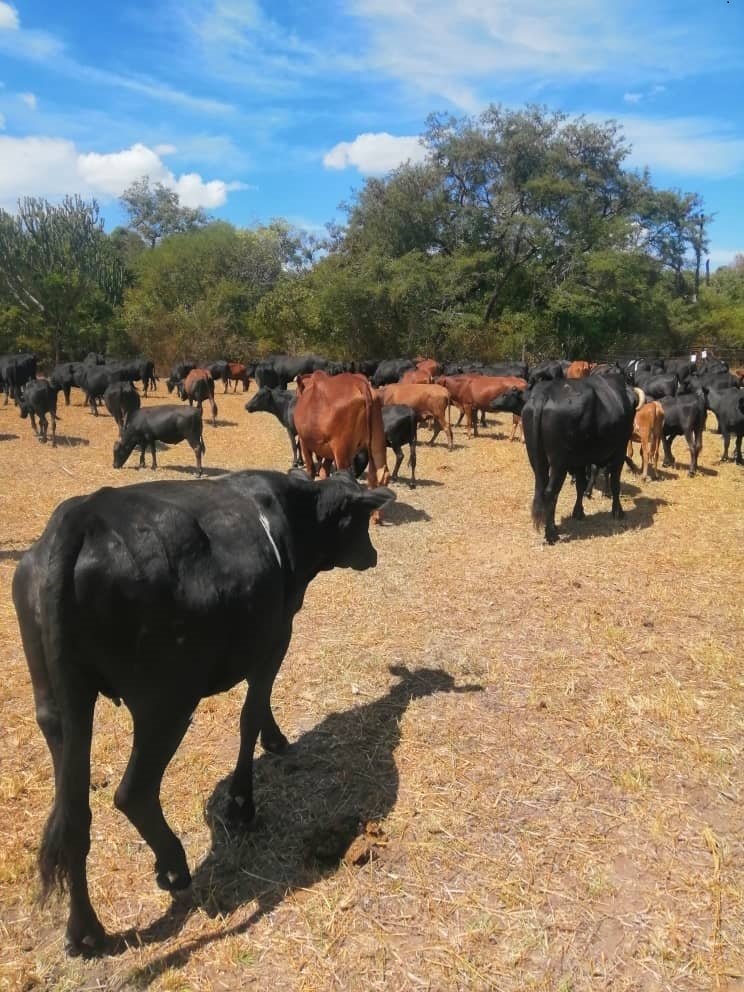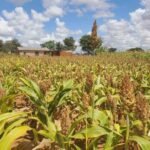By Decide Nhendo
As impacts of the El Nino-induced drought continue to hit hard in the country resulting in pasture inadequacy, research officers at Makoholi Research Institute have encouraged farmers to take advantage of local materials to produce livestock feeds as drought looms.
This came out at Makoholi Research Institute where Ministry of Lands, Agriculture, Fisheries, Water and Rural Development held previous year reviews and strategic planning meetings on livestock research where robust measures and strategies against the effects of drought on livestock were presented by the institute’s scientists.
Speaking at the meeting, MoLAFWRD Permanent Secretary Professor Obert Jiri applauded scientists and research officers at Makoholi for inventing livestock feeds from local materials and helping farmers with supplements during the drought.
Jiri said from the researchers’ findings it is distressing to note that the feeds can be produced from local materials like cactus pea, acacia and crop residues that succumbed to drought (stover) and local trees which farmers can add value to and increase nutrients for cattle.
“I applaud scientists for their research, so it is now up to farmers to be innovative at the local level and produce feed for their livestock to supplement little grass left out by drought using some of the ingredients.
“Farmers must welcome locally invented machines by our scientists easy to operate which produce molasses blocks for goats from, salt and local Stover for goat feeds with cheap locally available materials,” said Jiri.
Showcasing some of their discoveries and inventions to Profesor Jiri, Makoholi Research Institute Research Officer Calisto Gwatirisa said a properly formulated feed especially in the dry season provides livestock with a balanced diet for animals with all nutritional requirements.
“We managed to produce a balanced diet for animals through food formulation where we mix various feed components in appropriate amounts to meet specific nutritional needs of an animal.
“The main objective of feed production is to provide an economical palatable and nutritionally adequate diet to promote optimal animal growth, its health as well as productivity,” Gwatirisa said.
Feed formulation is important because it leads to improved animal performance, and provides animals with all nutritional requirements, especially in dry seasons like this El Nino.
Head for Makoholi Research Institute Boziwe Tererai said for farmers to keep their livestock safe from drought, they must provide enough water, allow enough time for grazing as well as supplying of food supplements through the use of safe crop residues as there were some cases where rapoko residues poisoned livestock.
MLAFWRD Director Responsible for Livestock Andrew Chamisa echoed the same sentiments and said they were targeting to produce 100 metric tonnes of vegetative planting material and pasture as part of the plan for the drought through the use of schemes and farmers to provide pastures.
“Last year we conserved plant and animal genetic resources through generation, packaging, and dissemination of new livestock technology knowledge and this reaches farmers through agents.
“Our main goal was to produce 100 metric tonnes of vegetative planting material and pastures specifically to provide supplementary feed for livestock when it is totally dry and there is no grass, especially in areas where it is always dry.
“This year we are going to use technology generation and publications, and improve resource mobilization by responding to calls for funding so that the institutes will be capable of undertaking their task,” said Chamisa.







